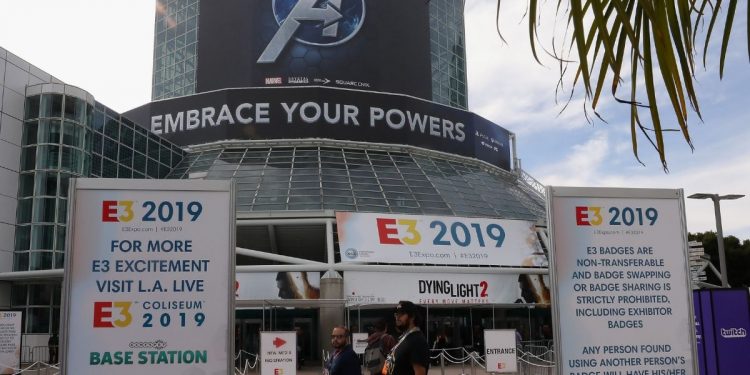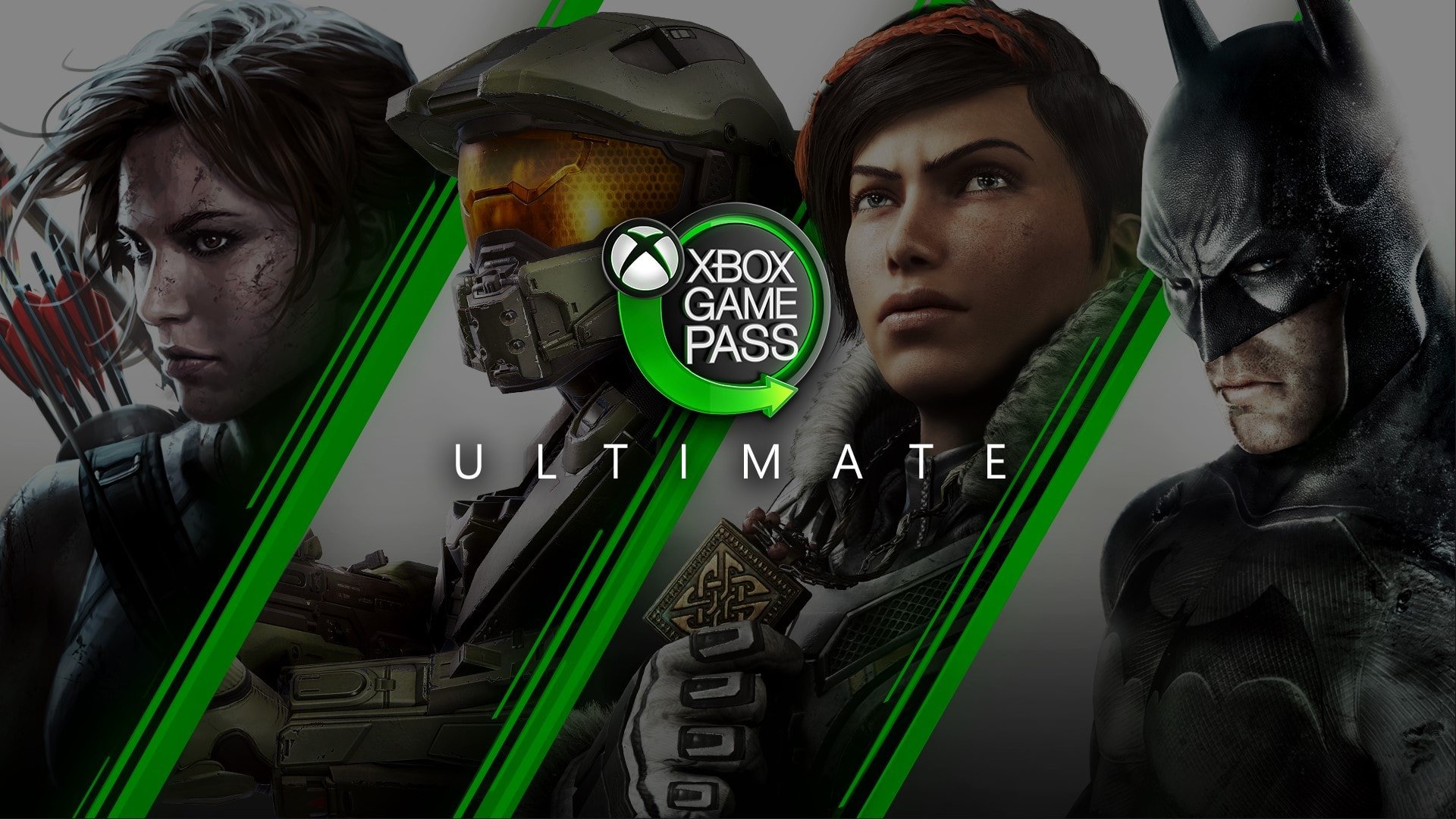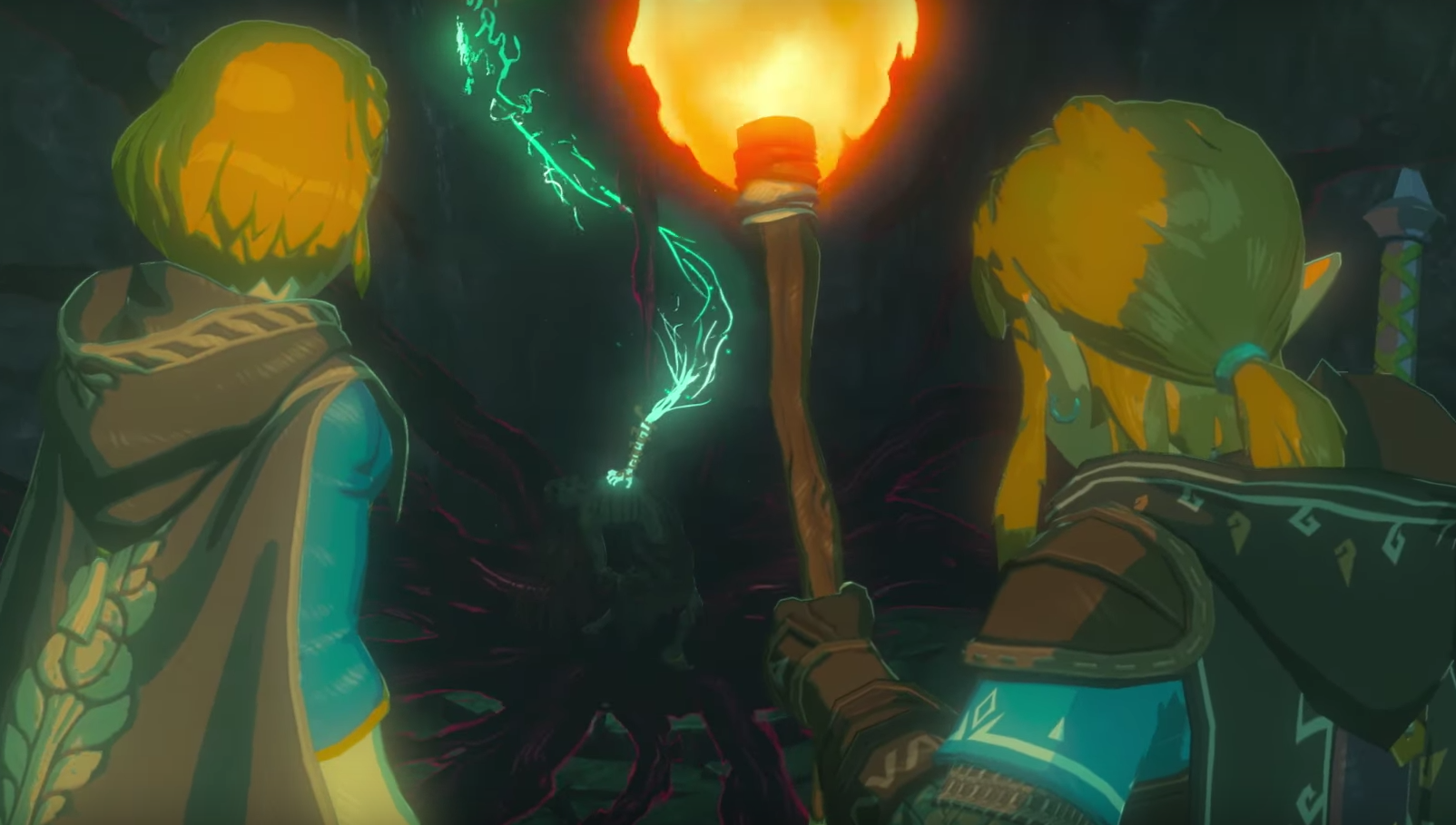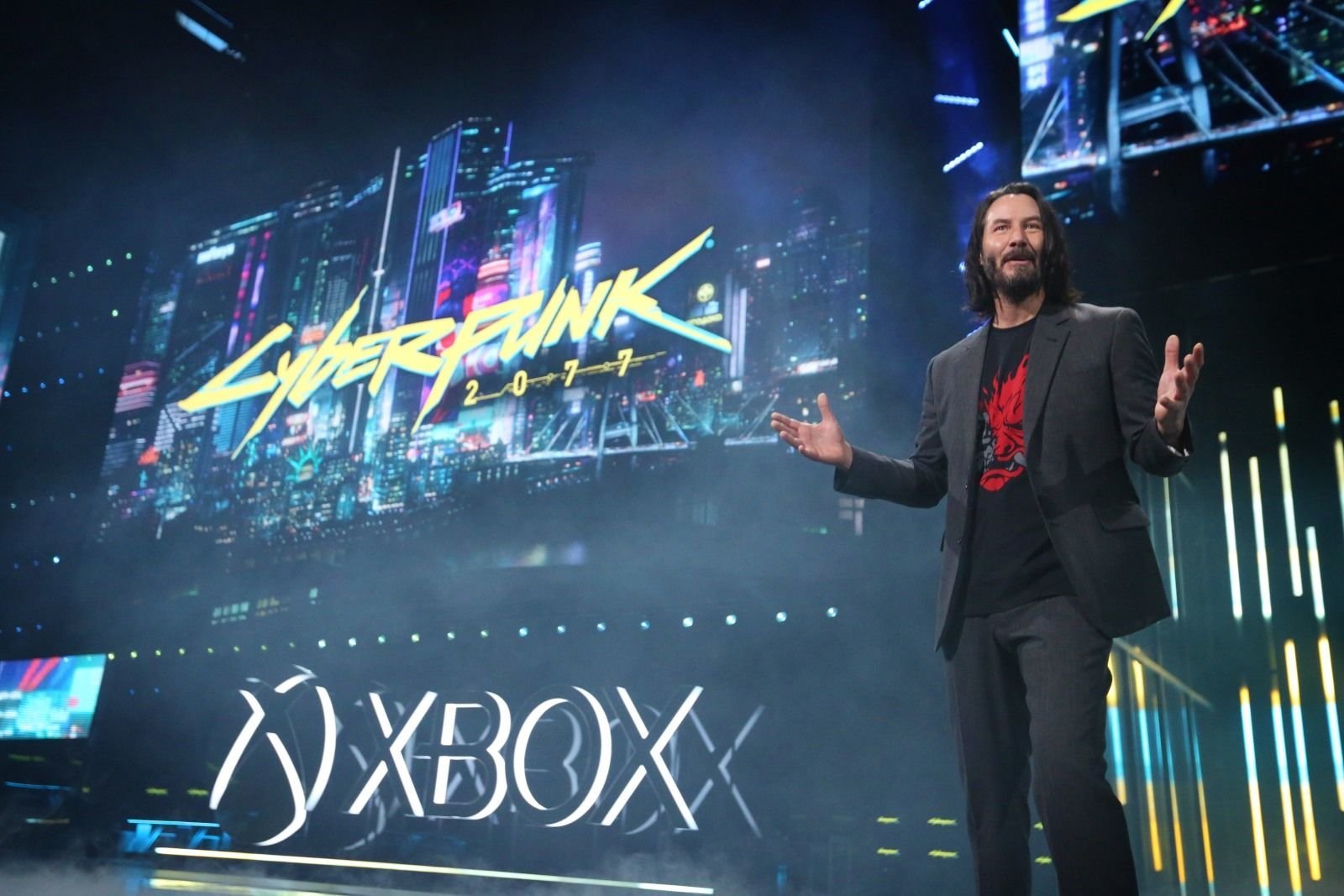
E3 2019 officially comes to a close today, having showcased numerous upcoming games from over 200 exhibitors at the Los Angeles Convention Center. We all know that the show’s importance stretches beyond the confines of the LACC, however, with a global impact being felt from the publisher streams watched intently by gamers in the days just prior to the show floor actually opening its doors.
Arguments about E3’s relevance aside, as the show continues to reinvent itself, seeing what each company reveals or spotlights during their respective streams can tell us a lot about corporate strategies and big industry trends to keep an eye on over the coming year. With that in mind, GameDaily’s expert team has collected its thoughts on what we’ve learned in our staff roundtable below.
Having covered this business for almost two decades, I can’t stop thinking about how weird E3 2019 is without Sony. The PlayStation team knows what it’s doing, but there’s no denying that Sony’s absence gave both Microsoft and Nintendo ample room to shine… and shine they did. Microsoft put on one of the best presentations from the Xbox camp I’ve seen in years. This is a gaming organization that truly is feeling confident and is firing on all cylinders. Being able to spotlight 60 games, many of which will be available on launch day with Xbox Game Pass, while also revealing the new Xbox, Project Scarlett and more details on xCloud, all in under two hours was highly efficient.
And let’s not forget that in that same briefing, Microsoft also announced yet another studio acquisition in Double Fine Productions, bringing the studio count to 15 after bulking up recently with Obsidian, inXile, Ninja Theory, Undead Labs, Playground Games and Compulsion Games. Sony’s Worldwide Studios has had the upper-hand in first-party talent for years, but this is now a very close race, and that’s crucially important to the future of Xbox Game Pass. All of this talent is going to continue creating incredible content that will make Xbox Game Pass very, very hard to pass up for any hardcore gamer. For as much hype as there’s been around cloud gaming, there are too many question marks remaining. The subscription model, though? That’s going to boost the Xbox business for a long time. It’s truly the ace up Microsoft’s sleeve, and it’s fantastic that they’ve expanded Game Pass to PC as well.

As for Nintendo, the house of Mario always marches to the beat of its own drum. And that’s a beat that its fans adore. The 2019 E3 Direct gave new president Doug Bowser a chance to ham it up in typical Nintendo fashion while the company went on to satisfy the Nintendo faithful with a new Animal Crossing, the unveiling of a sequel to Zelda: Breath of the Wild, the return of Banjo-Kazooie to the Smash Bros. lineup (thanks to an agreement with Microsoft-owned Rare Ltd.) and much more. Nintendo isn’t worried about cloud gaming, next-gen hardware or other big buzzworthy trends (at least not publicly) and the results speak for themselves.
As NPD industry analyst Mat Piscatella commented on Twitter, “Switch is going to have one heck of a good 2019… and beyond. Letting people play their games wherever, whenever, without a required internet connection, with tons of content appealing to every gaming segment. Switch hardware sales are currently leading the US market in a big way, Nintendo is the leading software publisher, and neither of these facts show any signs of slowing anytime soon.”
Winter is coming. Winter 2020, that is.
As James alluded to, this E3 has been weird. But not just because Sony isn’t at the show this year. Rather, because we’re in the transition between hardware. A sort of weird and somewhat jarring feeling that we’ve not had since 2012, the final year of PS3 and Xbox 360 before PS4 and Xbox One got their big rollout in 2013. Coming into this year’s show, there was this expectation that a majority of the big companies exhibiting are now entering a holding pattern for the official next-gen reveals from Sony and Microsoft. And for the most part, they did.
Look closely, however, and you can see a perfect storm coming in time for Christmas next year, especially between all three first-parties. Sony has PlayStation 5 and its first-party games to launch, even if we don’t know what those are yet (Sony still has to release three big games for PS4, starting with Death Stranding on November 8 this year). And Microsoft has Project Scarlett, the next-gen Xbox, confirmed for Holiday 2020. When Scarlett drops next year, it’ll launch with Halo Infinite, the first time in 19 years a new Xbox console will launch with a new game from the flagship franchise.
And even without new hardware, Nintendo will more than likely be planning something on its part to help combat both next-gen launches in some form. And we may have gotten a look at it in the Nintendo Direct in the Legend of Zelda: Breath of the Wild sequel. As I noted in my report rounding up everything the broadcast had to offer, this feels super primed for a Holiday 2020 launch thanks to Nintendo reusing assets from the original game (and precedent if you consider that Majora’s Mask on Nintendo 64 came just a year after Ocarina of Time).

If this year’s show feels weird or even dull, Sony and Microsoft’s next-gen launches and the possible launch of the next mainline Zelda game on Nintendo Switch sets up a massive battleground for next year’s E3. Pick your fighter.
E3 2019 took us all one step closer to a future in the cloud. In the last couple of years, the sleeping giant that is cloud gaming has gone from a burgeoning novelty feature to a technical inevitability. The next generation of consoles are poised to build their business models around cloud services, whether consumers want it or not. During E3 this year, Microsoft dished out more details about Project Scarlett and the xCloud gaming project, and just last month the tech giant doubled down on Xbox Game Pass. In addition, Google revealed release dates and pricing for Stadia, and Ubisoft was the first to announce a subscription-based service for the platform. Even without the presence of Sony and any future plans for its PS Now service, cloud gaming is set to take the industry by storm.
Looking beyond the initial sales pitch of faster game downloads and less demanding hardware needs, cloud gaming is going to force consumers to analyze their priorities more than ever before. This is thanks in large part to a daunting number of subscription services that are likely to present themselves come the next generation. Beyond Google Stadia’s $9.99 per month base price, gamers will have to consider any publisher-specific subscriptions the platform will offer (Ubisoft has announced a $14.99/month price for Uplay+). It’s not unreasonable to expect other services, such as EA Access, to follow suit as well.
Looking beyond Stadia, there are a bevy of other subscriptions already in play that are competing for attention. Xbox Live, Xbox Game Pass, PlayStation Now, PlayStation Plus, and Nintendo Online all require subscriptions, not to mention video streaming services like Netflix, Hulu, Prime Video, HBO, Crunchyroll, and the upcoming Disney+. Keeping track of all these services, much less being able to afford them, is bound to become an ongoing theme for the foreseeable future.
While this E3 certainly wasn’t lacking for software, the biggest takeaway isn’t what we’ll be playing. It’s how we’ll be playing.
Xbox Game Pass upping the ante on content. Ubisoft getting into the subscription game. Google is about to launch the cable TV-like Stadia platform. EA, Microsoft, and others are investing in cloud-based delivery solutions.
We’re seeing the next phase of the industry’s inevitable push toward digital content adoption and away from the current paradigm of ownership (read: software licensing). Physical isn’t going anywhere. Just like movie fans still buy their favorite films and music lovers are purchasing albums (though these days, vinyl is getting the most attention), consumers will still be able to purchase the games they want at retail.
This will simply shift. Instead of possessing every game like they did in the PlayStation 2/Xbox era, or most games like in the PS3/Xbox 360 period, and some games in this generation, the future is going to further tip the balance. We’ll see the rise of subscriptions, as we did over a decade of transition with Netflix and Spotify. Retail will be relegated to those titles we find to be precious to us.
The next generation of console hardware is going to be the next step on the path we’re already walking. And if the price is right and the offering a fair value, consumers won’t stand in the way of games joining film and music.
For me, one of the most notable E3 2019 moments came from Bethesda. It’s not every day you see the head of a major game studio stand up on stage in front of thousands and say “We messed up.” But that’s essentially what Todd Howard of Bethesda Game Studios did Sunday night at Bethesda’s media showcase. He was referring to Fallout 76, the first online-only entry in the long-running Fallout series.
When Fallout 76 launched last fall, there’s no denying that it was… lacking. Part of that was the lack of NPCs, which made the post-apocalyptic Appalachian mountains and forests feel empty. Then there were the technical issues; servers would crash if too many people launched nukes, or for any reason at all, really.
Bethesda’s not giving up on Fallout 76, though. Bethesda announced some major updates that will bring back NPCs and add a battle royale mode tied to the opening of another vault. The game has already come a long way since launch, thanks to regular patches and updates based on player feedback, but the forthcoming content will go a long way towards making Fallout 76 the game it could have been. Oh, and it’s all going to be free.
Compare Bethesda’s aggressive course-correcting with EA’s behavior when it comes to Anthem. The BioWare-developed game was much hyped at the last couple of E3s, but mysteriously absent from EA’s 2019 E3 presentation just a few months after its shaky launch. That’s what makes Bethesda’s response so noteworthy. Online-only games will always be a risky proposition, but other studios hoping to launch them should study Bethesda’s behavior.
Every E3 has a flavor to it: some are focused on hardware, others preview upcoming services console owners can look forward to. But E3 2019 was an exciting one because it represented the best of the expo: the games. This year, there were plenty of them.
Bethesda showcased Doom Eternal, Wolfenstein: Youngblood, and the series’ VR spin-off, Wolfenstein: Cyberpilot. The company’s new title Ghostwire Tokyo stole the showcase and charmed gamers thanks in no small part to its charismatic front runner, Ikumi Nakamura. Over at the Xbox show, Cyberpunk 2077 received a healthy PR bump with a new story trailer, a confirmed March 2020 release date, and a surprise Keanu Reeves appearance (as well as another round of controversy over the game’s handle on gender and race). Meanwhile, gamers earned a glimpse at Xbox’s Double Fine acquisition and Psychonauts 2’s progress, as well as teaser info on Project Scarlett and its inaugural Halo title, Halo Infinite.

But if one company stood out, it was Nintendo. After fans waited years for a new release in the main franchise, Animal Crossing: New Horizons received a gameplay reveal trailer and a March 2020 release date. Luigi’s Mansion 3 finally received a home on the Nintendo Switch as well, and Nintendo announced that a sequel to The Legend of Zelda: Breath of the Wild is in the works. Fans were further amazed by Nintendo’s surprise introduction of two new Super Smash Bros. Ultimate characters, Dragon Quest’s hero and cult favorites Banjo-Kazooie, as well as a gameplay trailer for the Switch’s The Legend of Zelda: Link’s Awakening remake.
E3 2019 was filled with new games for players to look forward to, exciting announcements for developers to celebrate, and myriad titles for designers to unpack and study. Expect next year to build off that momentum with breathtaking next-gen game reveals.
This year’s E3 was a bit quiet without Sony, Activision, or even European publisher, Focus Home Interactive. But it certainly wasn’t light on insight or news.
Microsoft continues to be the market leader for subscription services, even after Ubisoft’s announcement of UPlay+, especially with the announcement of Xbox Game Pass Ultimate. Bethesda’s Project Orion has the potential to reshape how developers approach cloud gaming by optimizing games for streaming at the game engine level.
But the overall sentiment at this year’s E3 has been about doubling down on what each of the major studios and publishers consider to be the most important metric: long-term engagement. I heard it over and over again during demos and interviews: developers want gamers to stay with their game for longer than the span of the game’s critical path, and leadership is keen to push.
 GameDaily.biz © 2026 | All Rights Reserved.
GameDaily.biz © 2026 | All Rights Reserved.